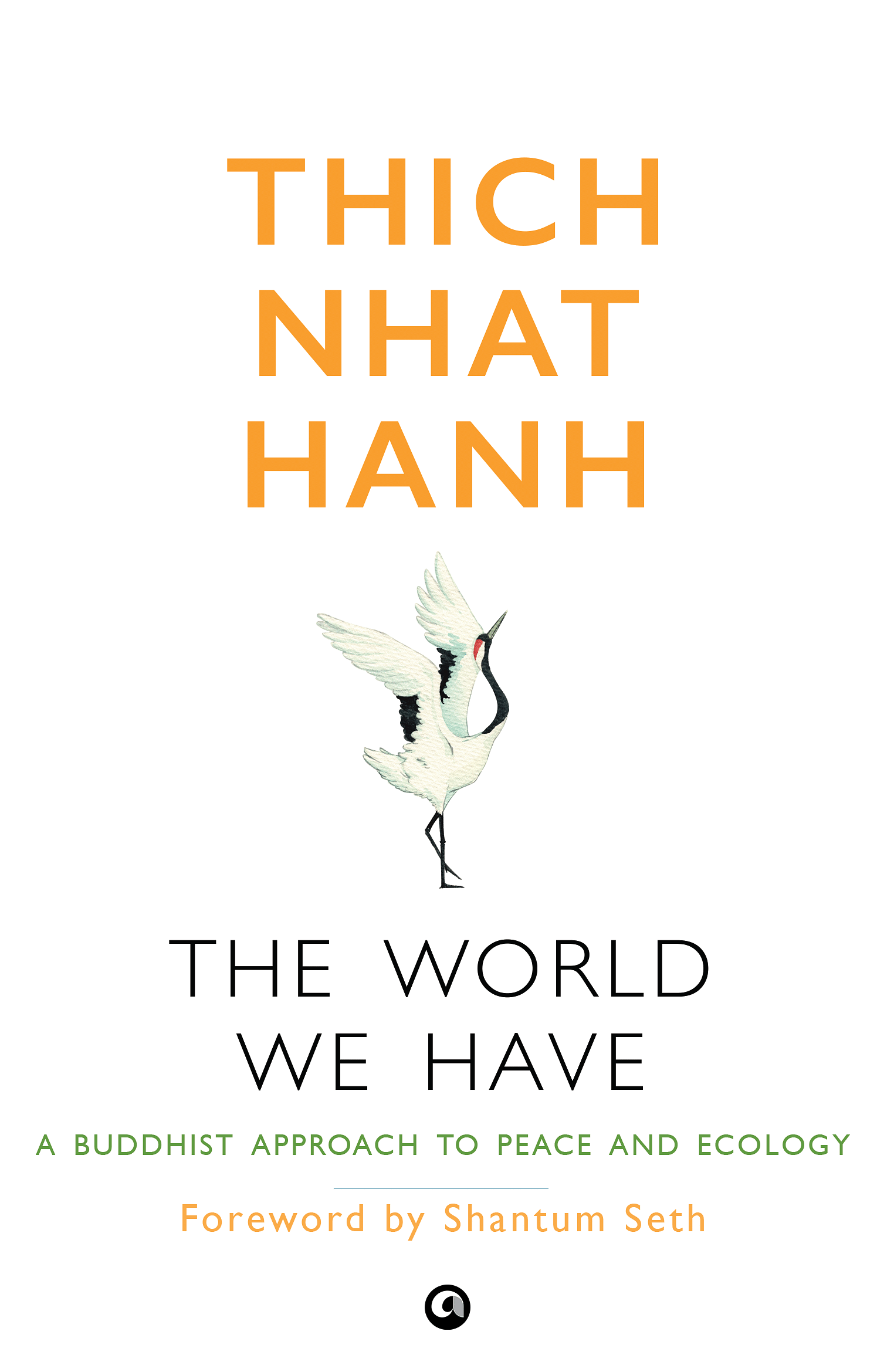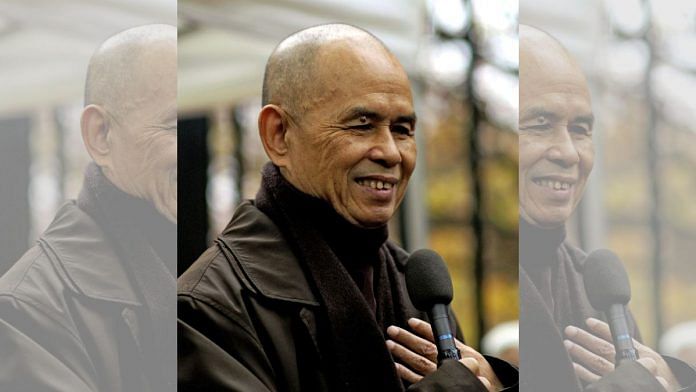The harmony and equilibrium within the individual, society, and nature are being destroyed. Individuals are sick, society is sick, and nature is sick. We must re-establish harmony and equilibrium, but how? Where can we begin the work of healing—in the individual, society, or the environment? We must work in all three domains. People of different disciplines tend to stress their particular area. For example, politicians consider an effective rearrangement of society to be necessary for the salvation of humans and nature and therefore urge that everyone engage in the struggle to make changes in the political system.
Buddhist monks are like psychotherapists in that we tend to look at the problem from the viewpoint of mental health. Meditation aims at creating harmony and equilibrium in the life of the individual. Buddhist meditation deals with both the body and the mind, using breathing as a tool to calm and harmonize the whole human being. As in any therapeutic practice, the patient is placed in an environment that favours the restoration of harmony. Usually psychotherapists spend their time observing and then advising their patient. However, I know of some, who, like monks, observe themselves first, recognizing the need to first free themselves from the fears, anxieties, and despair that exist in each of us. Many therapists seem to think they themselves have no mental problems, but the monk recognizes in himself his susceptibility to fears and anxieties, and to the mental illness caused by the inhumanity of our existing social and economic systems.
Buddhist practitioners believe that the interconnected nature of the individual, society, and the physical environment will reveal itself to us as we recover and we will gradually cease to be possessed by anxiety, fear, and the dispersion of our mind. Among the three domains—individual, society, nature—it is the individual who begins to effect change. But in order to effect change, the individual must be whole. Since this requires an environment favourable to healing, the individual must seek a lifestyle that is free from destructiveness. Our efforts to change ourselves and to change the environment are both necessary, but one can’t happen without the other. We know how difficult it is to change the environment if individuals aren’t in a state of equilibrium. Our mental health requires that the effort for us to recover our humanness should be given priority.
Restoring mental health does not mean simply adjusting oneself to the modern world of rapid economic growth. The world is sick, and adapting to an unwell environment cannot bring real health. Many people who need psychotherapy are really victims of modern life which separates us from each other and from the rest of the human family. One way to help is to move to a rural area where we have the chance to cultivate the land, grow our own food, wash our clothes in a clear river, and live simply, sharing the same life as that of millions of peasants around the world.
For therapy to be effective, we need environmental change. Political activities are one recourse, but they are not the only one. Tranquilizing ourselves with over consumption is not the way. The poisoning of our ecosystem, the exploding of bombs, the violence in our neighbourhoods and in society, the pressures of time, noise, and pollution, the lonely crowds—all of these have been created by the course of our economic growth and they are all sources of mental illness. Whatever we can do to bring these causes to an end is preventive medicine.
Keeping our mental health as a number one priority means we must also recognize our responsibility to the entire human family. We must work to prevent others from becoming ill at the same time that we safeguard our own humanness. Whether we are monks, nuns, teachers, therapists, artists, carpenters, or politicians, we are human beings too. If we don’t apply to ourselves what we try to teach to others, we will become mentally ill. If we just continue on with our lives, going along with the status quo, we gradually become victims of fear, anxiety, and egotism.
A tree reveals itself to an artist when the artist can establish a certain relationship with it. Someone who is not human enough may look at his fellow humans and not see them, may look at a tree and not see it. Many of us can’t see things because we’re not wholly ourselves. When we’re wholly ourselves, we can see how one person, by living fully, can demonstrate to all of us that life is possible, that a future is possible. But the question, ‘Is a future possible?’ is meaningless if we’re not able to see the millions of our fellow humans who suffer, live, and die around us. Only after we’ve really seen them are we able to see ourselves and see nature.
 This excerpt from The World We Have: A Buddhist Approach to Peace and Ecology by Thich Nhat Hanh has been published with permission from Aleph Book Company.
This excerpt from The World We Have: A Buddhist Approach to Peace and Ecology by Thich Nhat Hanh has been published with permission from Aleph Book Company.



